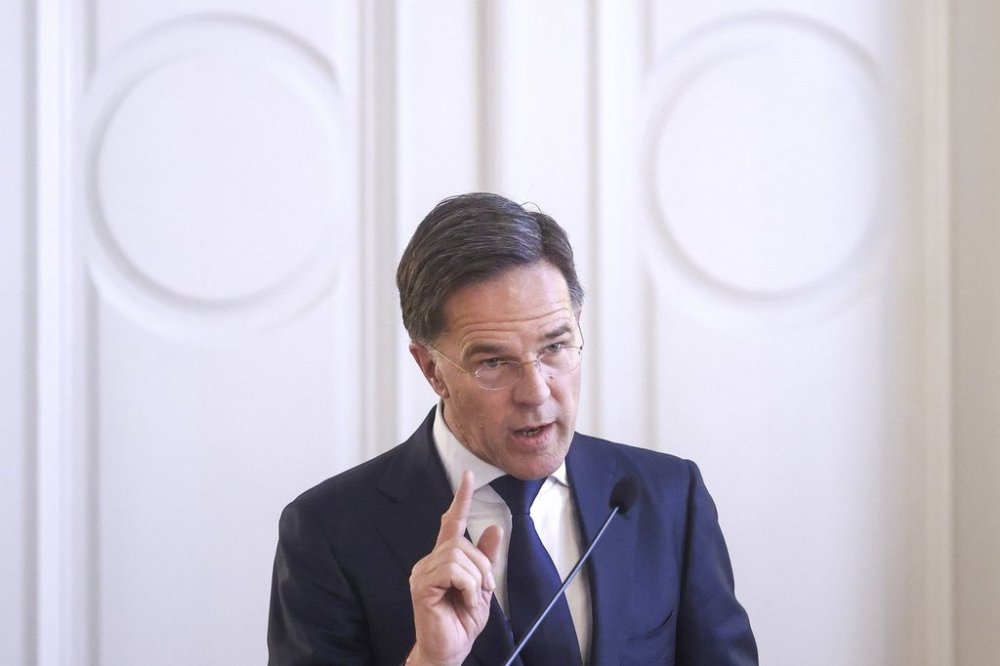NATO chief assures Western Balkans of alliance support and urges flexibility in Kosovo, Serbia talks
Advertisement
Read this article for free:
or
Already have an account? Log in here »
To continue reading, please subscribe:
Monthly Digital Subscription
$0 for the first 4 weeks*
- Enjoy unlimited reading on winnipegfreepress.com
- Read the E-Edition, our digital replica newspaper
- Access News Break, our award-winning app
- Play interactive puzzles
*No charge for 4 weeks then price increases to the regular rate of $19.95 plus GST every four weeks. Offer available to new and qualified returning subscribers only. Cancel any time.
Monthly Digital Subscription
$4.99/week*
- Enjoy unlimited reading on winnipegfreepress.com
- Read the E-Edition, our digital replica newspaper
- Access News Break, our award-winning app
- Play interactive puzzles
*Billed as $19.95 plus GST every four weeks. Cancel any time.
To continue reading, please subscribe:
Add Free Press access to your Brandon Sun subscription for only an additional
$1 for the first 4 weeks*
*Your next subscription payment will increase by $1.00 and you will be charged $16.99 plus GST for four weeks. After four weeks, your payment will increase to $23.99 plus GST every four weeks.
Read unlimited articles for free today:
or
Already have an account? Log in here »
Hey there, time traveller!
This article was published 11/03/2025 (298 days ago), so information in it may no longer be current.
PRISTINA, Kosovo (AP) — In his first trip to the once-volatile Western Balkans, NATO’s secretary general Tuesday underscored the alliance’s “steadfast commitment” to its security and urged Kosovo and Serbia to be flexible in their normalization talks.
Mark Rutte came to Kosovo after his first stop in Bosnia a day earlier, which he reassured of the military alliance’s “unwavering” support for its territorial integrity after a series of Bosnian Serb separatist moves raised tensions nearly 30 years after the end of a bloody war.
“A secure Western Balkans region means more security across the whole Euro-Atlantic area,” said Rutte. He added: “We must be clear eyed on what lies ahead. Decades of hard-won peace must not be jeopardized.“

Kosovo unilaterally declared independence from Serbia in 2008, a decade since the end of the 1998-1999 war between Serbian government forces and ethnic Albanian separatists that pushed Serbian forces out following a 78-day NATO air campaign.
Serbia doesn’t recognize Kosovo’s independence.
NATO leads the Kosovo Force, or KFOR, a peacekeeping mission of some 4,700 troops from 29 countries. It has increased its presence in Kosovo after tensions in the last two years.
“KFOR is fully postured to respond to any relevant security developments,” said Rutte.
The normalization talks with Serbia are “the only way to solve pending issues and secure a stable future,” according to the alliance’s head.
The European Union-facilitated Kosovo-Serbia normalization talks, which started in 2011, have yielded little result and they remain stalled.
Both the EU and the United States have been urging both sides to implement agreements reached two years ago that include a commitment by Kosovo to establish an Association of Serb-Majority Municipalities. Serbia was also expected to deliver on the de facto recognition of Kosovo.
Brussels has made it clear that normalization of their ties is indispensable for their integration into the bloc.
“To move this dialogue forward, both sides must show flexibility, make the necessary compromises, and focus on the long term gains,” said Rutte.
“Normalization brings greater stability, more investment opportunities, and also lasting security across the whole region for the benefit of all.”
___
Semini reported from Tirana, Albania.

